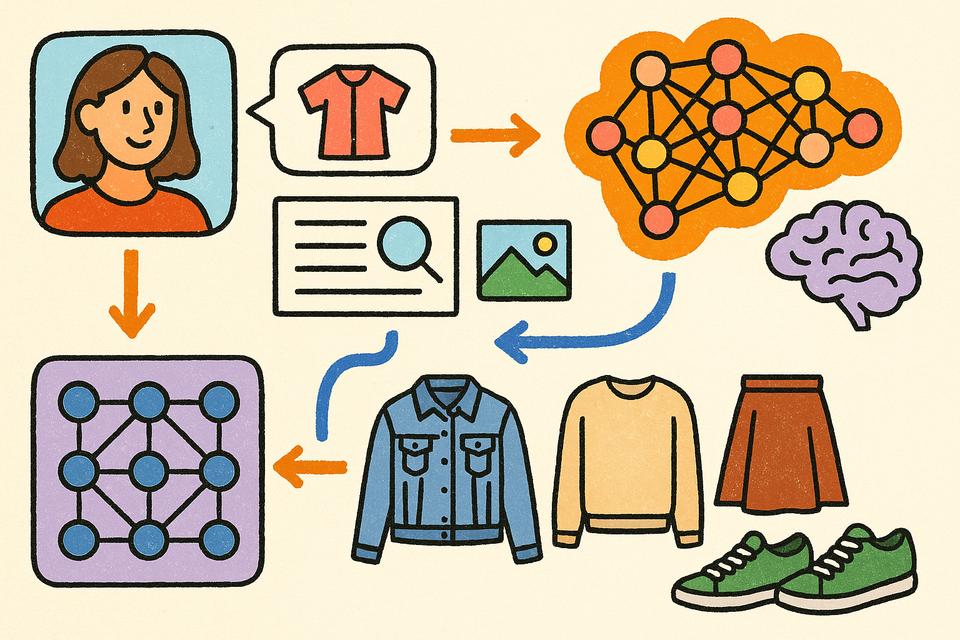Multi-modal RAG to Enable Creative Outfits
Building a recommendation system that uses multi-modal RAG to suggest creative outfit combinations based on visual and textual inputs.

Case Study: RetailNext AI-Powered Personalization
Summary
RetailNext, a Fortune 1000 clothing retailer, operates a vast network of department stores in a rapidly shifting retail environment. Customers increasingly expect tailored, seamless experiences, but RetailNext was facing challenges delivering on this promise. Recent reviews highlighted frustration from shoppers who could not easily find updated styles or specific items for upcoming events, putting both brand loyalty and revenue at risk.
Challenges
The core obstacles RetailNext faced included:
- Difficulty engaging and retaining customers who expect personalized recommendations across digital and in-store channels.
- Limited ability to integrate dynamic and personalized product data into existing applications.
- Missed opportunities to increase cart size and strengthen customer loyalty due to gaps in connecting shoppers with the right products.
Solution
To address these challenges, I built a prototype solution leveraging Streamlit, Python, and OpenAI’s APIs. At its core, the system used a Retrieval-Augmented Generation (RAG) pipeline enhanced with vision capabilities. Shoppers could upload a photo of a favorite look; the model (GPT-4o-mini) analyzed the image, generated style insights, and retrieved similar products using vector search powered by text-embedding-3-large. The LLM then reviewed and refined results to deliver personalized recommendations, effectively acting as a virtual stylist. Keeping latency down required the use of a smaller, faster model to ensure user retention.
The application was deployed through a Streamlit-based interface, providing an intuitive demo-ready UI. This aligned with the project requirements to extend the standard OpenAI Cookbook example into a user-facing experience, suitable for both technical walkthroughs and executive-level presentations.
Outcomes
The prototype successfully demonstrated how RetailNext could transform shopping into a more engaging and tailored experience. Key outcomes included:
- Improved personalization: Customers received recommendations directly aligned with their unique style, increasing likelihood of purchase.
- Operational efficiency: By combining embeddings with vector search, the solution streamlined how new items were surfaced and matched to customer needs.
- Innovation showcase: The demo illustrated how RetailNext could harness OpenAI’s secure, scalable, and governable platform to unlock new revenue streams while reinforcing their commitment to modern, customer-first retail experiences.
Ultimately, this project not only validated the feasibility of AI-driven personalization at scale, but also highlighted a clear path for RetailNext to differentiate in a competitive market.